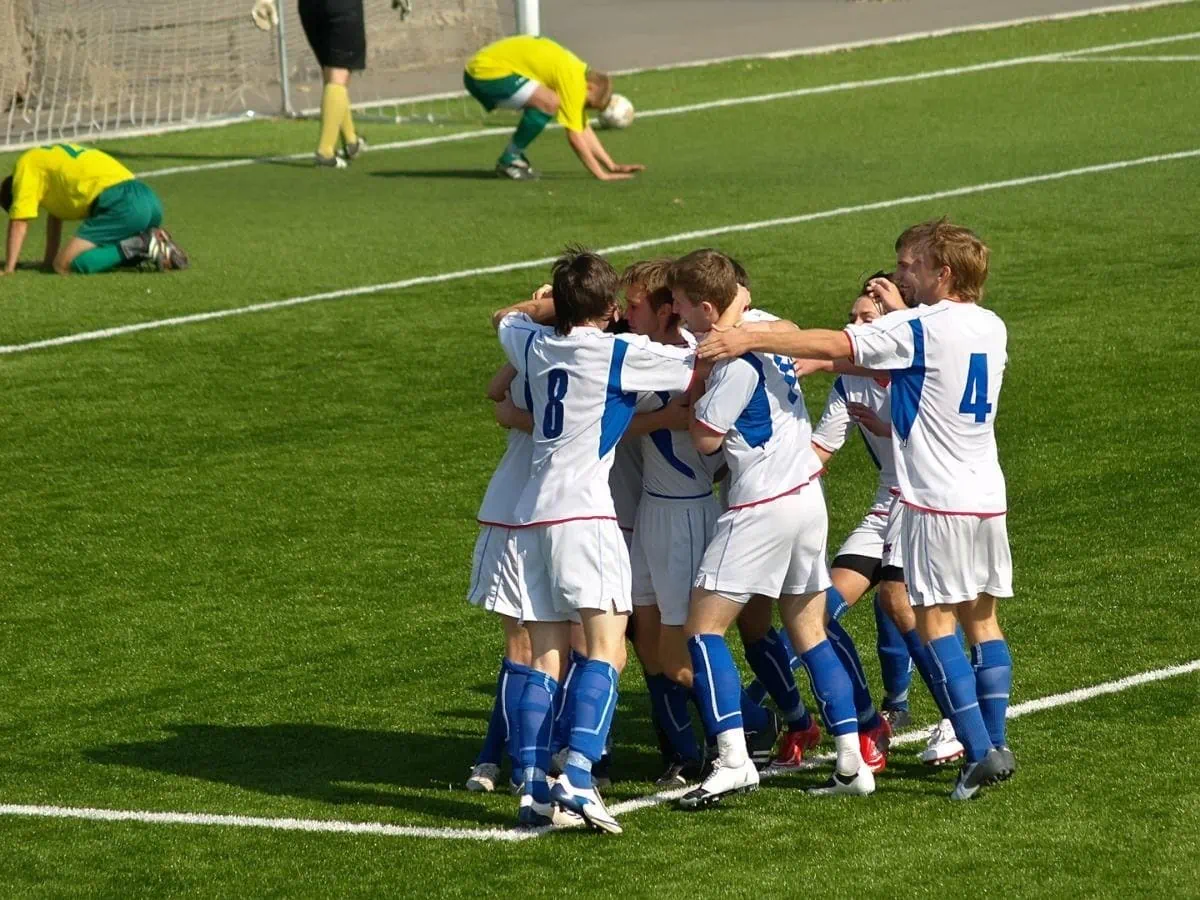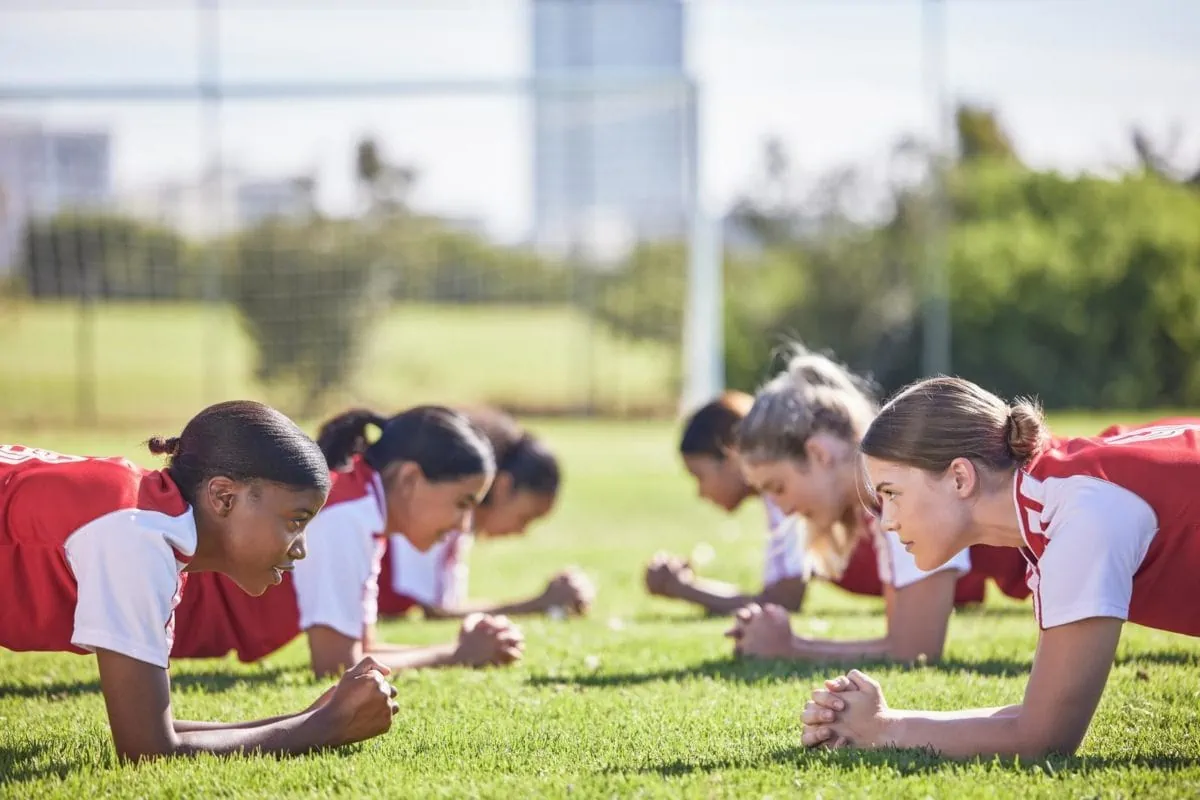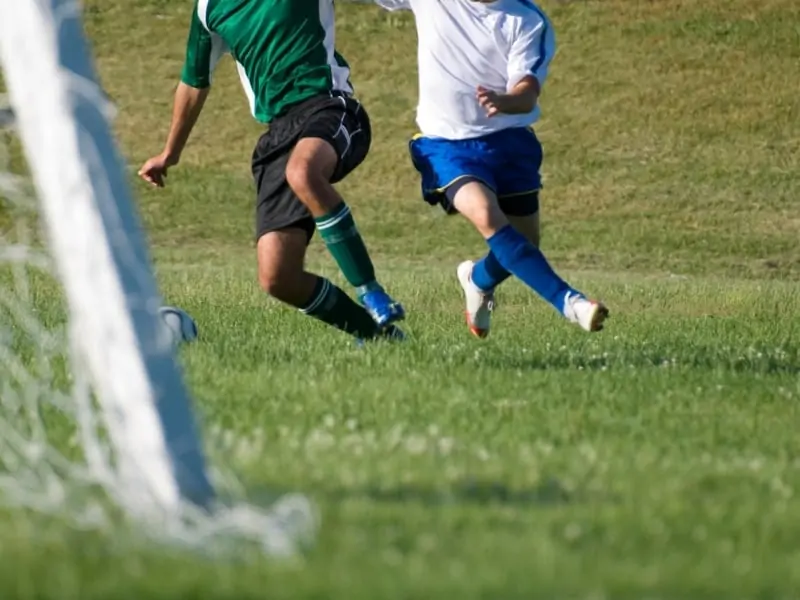Share the post "Is ODP Soccer Worth It? (Selection + Tryouts)"
Younger players and beginners often find it hard to rise to the top; sometimes, the path can be confusing. However, there are many ways one can rise to the top.
Programs like the Olympic Development Program or ODP work towards identifying and developing young soccer talent and providing a progression to pro levels.
In the article, we shall learn about:
- What is ODP?
- What is EDP?
- What is ECNL?
- What is Club Soccer?
- What are the benefits of ODP?
- What do ODP scouts look for?
- ODP tryout tips
- How important is ODP for college soccer?
- Ohio Olympic development program soccer
Now that you have spent hours learning soccer tactics and techniques, read on to decide whether the ODP pathway is the best for you.

What is ODP?
ODP is an identification and development program for high-level soccer players in the United States. ODP is officially known as the U.S. Youth Olympic Development Program.
The program runs at the National, Regional, State, and District level to help identify budding players from their local areas.
Due to the robustness of the ODP program, many recruiting coaches, including those from college soccer, consider ODP a hotbed for talent. They often recruit from ODP.
What is EDP?
EDP is a league started by a group of elite clubs. They came together to provide a development-friendly competitive opportunity.
The team and club coaches can work together to support and develop players for the higher levels of soccer, including college, pro, and international.
What is ECNL?
ECNL is a top league-based platform for both boys and girls soccer players. It was first started in 2009 and has expanded to include boys.
ECNL aims to improve the competitive environment by creating a national league with multiple flights. It also improves the process of identifying elite soccer players for the U.S.
Soccer Youth National Teams and develops best practices, training, and organizational guidelines for its member clubs.

What is Club Soccer?
U.S. Club Soccer is one of the largest sports governing bodies in the United States. It has over half a million players on board across all soccer-playing levels and has over 70,000 staff members working within US Club-affiliated organizations.
They believe that clubs are the primary vehicle for player development, and they aim to be the crème de la crème of soccer in the U.S. and be a crucial part of the U.S. National Team’s success.
What Are the Benefits of ODP?
Taking part in ODP is highly beneficial to a developing player. Here are the benefits of participating in ODP.
Development as a Player
ODP offers a system through which a player can develop. Players meet experienced soccer icons and professional coaches at each event and camp and are taught by the best.
They also get to interact, train, and play with the best soccer players in their age group, which is a priceless opportunity for any budding soccer player.

Opportunity to Play With Higher Players
Since the ODP starts at the tryout, progressing to the national level, at each level, the player gains exposure to competition higher than they are used to locally.
As a result, they get competitive game experience and can further develop their skills.
Quality Instruction From Nationally Licensed Coaches
The ODP system allows young soccer players to interact with professionally trained and accredited soccer coaches during ODP camps and events.
The interaction with these competent coaches is foundational to developing soccer talent.
Quality Competition
Once a player signs up for ODP, they have signed up for the competition. They are advantageous because ODP competitions are not just casual competitions but well-structured, highly competitive interactions that immensely benefit the player in terms of growth and exposure.
Exposure to Regional and National Coaches
ODP starts at the local and district levels but does not end there. As the players progress to higher levels of the ODP, they interact with regional and even national coaches who can potentially improve the player’s game exponentially.
The Opportunity to Represent the State, Region, or Country
As players progress through the ODP levels, they get the chance to be in the state, regional or national pools and teams.
In addition, states, regions, and the country draw from the available pool of players to represent them at various local and international competitions.
Exposure to College Coaches
Since ODP can pull a significant number of developing players, college coaches and recruiters find it lucrative to recruit from ODP events and competitions.

What Do Odp Scouts Look For?
When it comes to playing good soccer, many things come into play. For some players, their advantage is their sprinting power. For others, it is their endurance.
Furthermore, there are those with exceptional dribbling skills and systematic and clinical players.
Of course, having just one of such skills makes you noticeable, but a scout will be invested in you if you have multiple skills and can display them consistently.
These are some of the things that scouts look for:
Touch On the Ball
While assessing this, the scout establishes how comfortable you are with the ball in possession. They want to see how you handle the ball with both feet.
Balance
How in control are you of your body? They want to see how fast you turn, change direction, and move the ball from one foot to another. The more swift you are, the more noticeable you are.
Technical Speed
Technical speed is the speed of execution. Therefore, scouts want to see how fast and effective players use their skills to control and possess the ball.
Coach-ability
The player should have a teachable attitude to grow and improve their skills. They have to accept criticism and act on it. Scouts are looking for someone who understands instructions and can execute them effectively.
Work Rate
In every field, a person who works hard is noticed. Scouts want to see a player who is not lazy on the field.
Awareness
Awareness refers to game sense—the ability of a player to understand the game and where they are at a specific moment. Awareness helps the player know when to dribble, shoot, or pass.
An aware player can understand the game’s progression and whether to speed it up or slow it down a notch.
Reaction to Failure
While looking at the reaction to failure, the scouts look at the players’ mental fortitude. When the game is not in their favor, they reside and give up or step up and find their win.
Scouts need someone who can rise above adversity and perform.
Leadership Qualities
A player who can communicate effectively on the field, take charge, and lead by example is a favorite for the scouts—being an exceptional soccer player is learning to demand the ball and take control of intense situations.
This is what scouts are looking for.
Physical Speed
Soccer is a very physical game, and the faster you are without losing the ball or breaking team play, the better you are. Therefore, scouts are usually keen on physical speed.
Size and Strength
Due to the physical nature of soccer, the ability to hold your own against other physically endowed players is vital. Therefore, scouts are not looking for a player who, with a single push, is sent flying across the field.

How Are ODP Players Selected?
ODP players are selected through the tryouts. Tryouts are held at the state level to select players with superior skills. The state coach makes the selection, and other qualified coaches can assist.
At the tryouts, the coaches are looking for the following:
- Technique: They usually pay attention to the player’s skill level, including ball handling and control.
- Tactical Understanding of the Game: The ability to play tactfully makes the team dominate their opponents. Therefore, the coaches are looking for such qualities in individual players. If a player has a tactical understanding of the game, they usually have the upper hand.
- Fitness and Athletic Capability: Soccer players are athletes. Athletic capability is crucial for a player’s success in soccer. That notwithstanding, fitness is also vital. A player has to be athletically gifted and has done their work to be fit for the game. Usually, a soccer game is 90 minutes. To be able to play well for 90 minutes, fitness is crucial.
- Attitude: How does the player approach the game? The attitude a player brings into the game is of interest to coaches. It speaks to how hard the player is willing to work, how they take criticism and correction, and their ability to motivate others and work as a team.
ODP Tryout Tips
Here are some tips to consider while going for your tryouts.
- Arrive early and get dribbling
- If possible, wear distinctive clothing
- Play with enthusiasm and influence the game
- Communicate in the game
- Network, let people know you, and get to know people
Is ODP Political?
Just like any other organization, the ODP has been faced with criticism. Some say it is too expensive since players have to foot all their bills for the events, training, and camps.
How Important Is ODP for College Soccer?
Certainly, ODP improves your chances of being selected for college soccer. It is a fantastic program where your skills can easily be noticed.
Most college soccer recruiters come to ODP events and camps to look at the available pool, and if you impress them, they get to recruit you.
ODP adds to the experience of the player as well as offers additional coaching to them. A player who consistently trains gets better, and ODP offers players this opportunity.
Ohio Olympic Development Program Soccer
The state of Ohio has a very comprehensive ODP program that runs in five phases, namely:
- Phase 1 – District training
- Phase 2 – District festival
- Phase 3 – State Pool
- Phase 4 – State Team & ODP Sub-Regional Event
- Phase 5 – Midwest Regional ID Camp.
Share the post "Is ODP Soccer Worth It? (Selection + Tryouts)"
Joel is a seasoned soccer journalist and analyst with many years of experience in the field. Joel specializes in game analysis, player profiles, transfer news, and has a keen eye for the tactical nuances of the game. He played at various levels in the game and coached teams - he is happy to share his insight with you.



